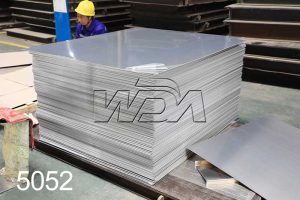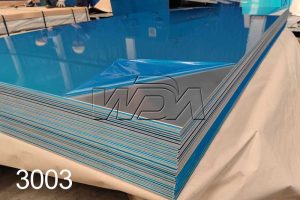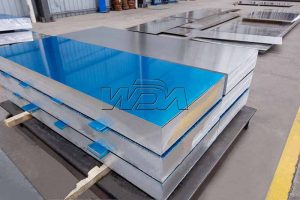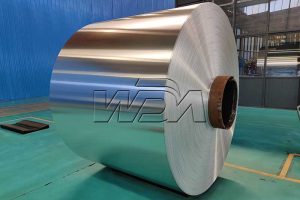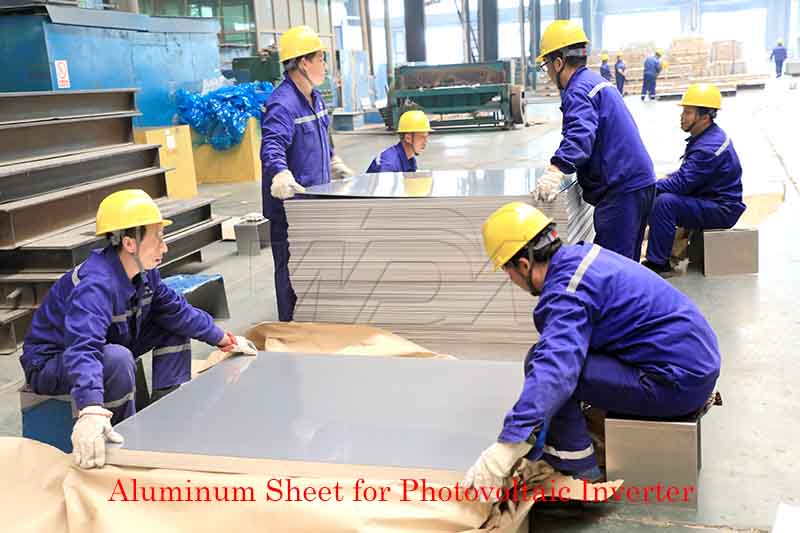
Aluminum Sheet for Photovoltaic Inverter
- Thickness: 0.15mm-170mm
- Width: Under 1600mm
- Length:Under 11000mm(11m) or by coil
- Alloy: 1060, 1070, 3004, 5052, 6061, 5083
- Email: wandaaluminumsheet@gmail.com
- Tel & WhatsApp: +8613619844700
Several aluminum alloys can be suitable for use in photovoltaic (PV) inverters, depending on the specific requirements and properties desired for the application. The choice of alloy will depend on factors such as mechanical strength, thermal conductivity, corrosion resistance, and manufacturability. Here are a few aluminum alloys that are commonly used in various industries, including for PV inverter applications:
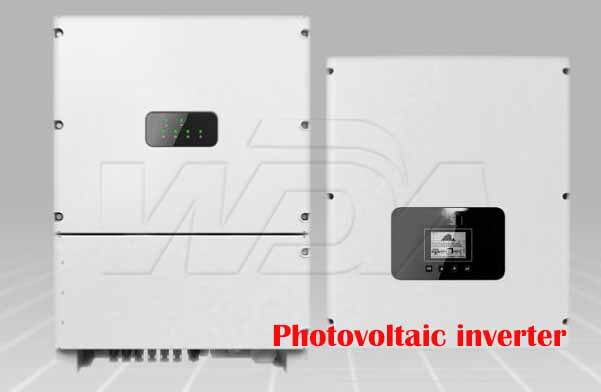
- Aluminum Alloy 6061 (T6): This alloy is known for its combination of strength, corrosion resistance, and machinability. It is often used in structural components and enclosures due to its good mechanical properties. The T6 temper of 6061 provides improved strength and hardness. It’s a versatile alloy that can be used in various parts of the inverter, including casings and structural components.
- Aluminum Alloy 6063 (T5 or T6): Similar to 6061, 6063 is another popular alloy used for extrusions and structural components. It offers good corrosion resistance and is well-suited for parts that require intricate shapes or complex cross-sections, which can be relevant for designing inverter casings.
- Aluminum Alloy 5052: This alloy is known for its high corrosion resistance and is often used in marine and industrial applications. It’s a good choice if the inverter is intended for outdoor installations where exposure to moisture and environmental elements is a concern.
- Aluminum Alloy 1100: While not as strong as some other alloys, 1100 offers excellent corrosion resistance and is often used for non-structural components, such as covers or panels. It’s particularly useful when corrosion resistance is a top priority.
- Aluminum Alloy 3004: This alloy has good formability and is often used for components that require deep drawing or bending. It also offers moderate strength and corrosion resistance, making it suitable for various inverter parts.
- Aluminum Alloy 5083: If the inverter is exposed to harsh environments, such as marine or industrial settings, 5083 is a high-strength alloy known for its exceptional corrosion resistance. It’s often used in applications requiring resistance to stress corrosion cracking.
When selecting an aluminum alloy for a PV inverter, consider the following factors:
- Mechanical Requirements: Determine the level of strength and mechanical properties required for the specific components. Different alloys offer varying levels of strength and hardness.
- Thermal Management: Consider the thermal conductivity of the alloy. Inverters generate heat that needs to be efficiently dissipated, so an alloy with good thermal conductivity can aid in heat management.
- Corrosion Resistance: Evaluate the inverter’s intended environment and exposure to moisture and other corrosive elements. Choose an alloy with suitable corrosion resistance for the conditions.
- Manufacturability: Consider how well the chosen alloy can be fabricated into the desired shapes and forms for inverter components.
It’s important to consult with materials engineers or experts in the field to ensure that the chosen aluminum alloy meets the specific requirements and performance goals of your PV inverter design. If you need these aluminum sheet for your project, just email me wandaaluminumsheet@gmail.com or whatsapp me +8613619844700.

